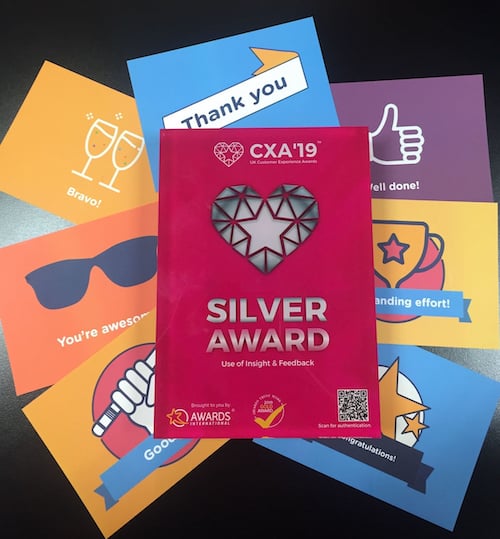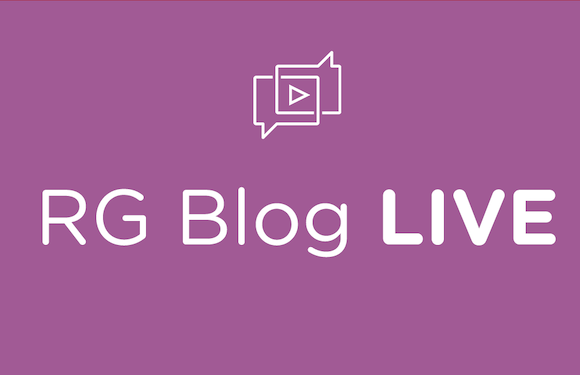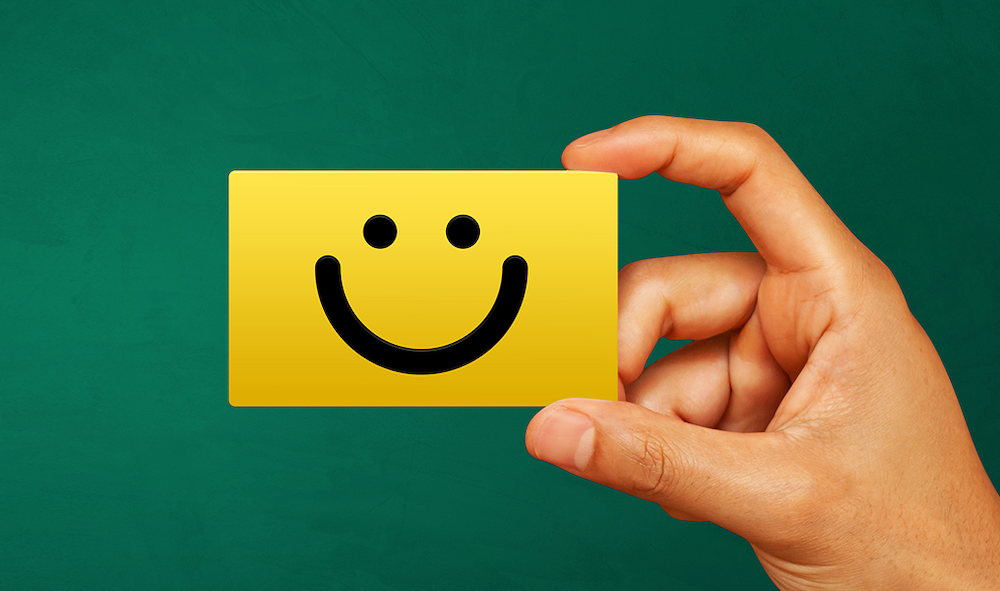Here’s the full transcript of our chat:
Chloe Deiulis: Hi, everyone. We're going to try something new today on the Reward Gateway Blog. I'm Chloe Deiulis for those of you that don't know me. I'm the Head of Content Strategy. I'm sitting here with Craig Tanner who is our Senior Product Manager. He joined the company a few months ago.
CD: We get a lot of questions here at Reward Gateway either on social or from our clients about what goes into making a product and all the evolution that we've had over the past year or so. I thought I'd go straight to the source and see what's up. Craig, thanks so much for answering a couple of our questions. We're going to get started.
One of the first things is that I know we've got a product manifesto, but I'm going to be honest, I don't really know what that is, and I don't really think a lot of people understand that.
Can you tell me a little bit about what a product manifesto is and what does that mean to Reward Gateway?
Craig Tanner: Absolutely. You might hear terms like “first principles” or “beliefs.” That's what we call our product manifesto. It's these core beliefs in which, when we're developing product, we want to make sure we’re staying true to them.
One of those core beliefs is “Start with User Needs.” That's always so core to what we're doing. Another one is “Iterate and then Iterate again.”
We don't want just one shot at a product, we want to make sure that we're continually improving.
It's these core eight beliefs that as we build product – the whole product team, the developers – we’re all bought into these concepts to make sure we're building the right products for the right people.
Here’s a look at all of our beliefs that make up our product manifesto:
| 1. Start with user needs |
| 2. Design with data |
| 3. Understand context |
| 4. Iterate. Then iterate again. |
| 5. Do the hard work to make it simple |
| 6. This is for every employee |
| 7. Make things open: It makes things better |
| 8. It's OK to fail |
Download RG's Product Manifesto slides
CD: You've been in the world of product for a long time. How common is a product manifesto in other organisations?
CT: I hope it's common. I know it's not at times. Some companies I’ve helped develop one and build it out. Luckily, RG, they already had one.
I looked at it, and it's really awesome and super-refined. I'd say that it's becoming more and more common, but unfortunately, somewhat hit or miss with tech companies.
One of the things that I love about our product manifesto is it's completely focussed on the end-user. It's completely focussed on making a difference.
There is nothing on the manifesto that says, "Make sure we're making tonnes of money,” for instance. It's all focussed on how we make sure that those employees are loving their job every day, how we make sure that those end-users are better people, how managers are better managers. That's the focus. We're really focussed on delivering value because we believe that we'll be a successful company if we deliver the right value.
Our manifesto is purely focussed on building the right product for the right audience, which I really love.
CD: And how do we get that input, how do we get feedback for where our product goes?
CT: Lots of interviews with HR professionals, with end-users. A lot of times, it's people who aren’t even our clients. Sometimes, it's the best feedback. Looking through a lot of data from industry professionals. We are very clued in to the industry and the trends and where it's moving. It's all of that. I mean we've got client advisory boards where we invite a series of clients in and say, "Hey, today, we're going to talk about this topic." Sometimes, it's really refined with screens and designs and designed for very specific feedback.
Sometimes, it's just conceptual or, "Hey, let's chat about what a checkout experience might look like, and how do we make that valuable?” “How do we take a client's brand and really bring an employer brand to life in the recognition experience?" Sometimes, there are questions like that that are just kind of conceptual in nature. Other times, it's, "Let's look at these buttons, let's look this, how it flows, how it lays out."
Yes, lots of user interviews, lots of testing and data.
CD: How do you know that the product manifesto is making an impact at Reward Gateway and for its clients?
CT: Really good question. Another one of the beliefs on there is “Design with Data.” We're using data both when we're designing and implementing, but also post [design].
We want to make sure that we're measuring impact and measuring the results so that we’re confident that that decision was the right one, but there's other things too.
We just won a customer experience award or a CXA. We won the silver medal.

CD: Congrats.
CT: Well, thank you [laughs]. It was really focussed on two things: Are we providing the right value to the right people, and are we making a difference in having quality user experiences. We wrote a brief and demonstrated that value and luckily won a silver award, which is awesome.
It's much bigger than that. It's really making sure that every client is satisfied and they're driving value back to their users. Is engagement improving? Is turnover reducing?
Those are also key metrics that we're always wanting to chase after.
CD: If clients want to be a part of that feedback process, how can they raise their hand and get involved to get the feedback back to your team?
CT: We're always trying to connect with clients in whatever capacity we can. We've got surveys and walk-throughs that we're sending out asking end-users to go through, but also, like I said, we've got client advisory boards. We're inviting clients on-site in multiple locations around the world to say, "Hey, can we sit with you? Can we spend an hour or two?" If anyone wants to get involved with that, just reach out to their Client Success Manager who they're working with day-to-day to make sure there are successful programmes being run, and they can connect us with the product team and make sure that we're collaborating.
CD: Thanks so much for joining me today, Craig. I found it really insightful and hopefully, those of you that are watching are as well. I know this won't be the last time we'll see you because we've got a lot of questions for you, so until next time…

 Chloe Thompson
Chloe Thompson



